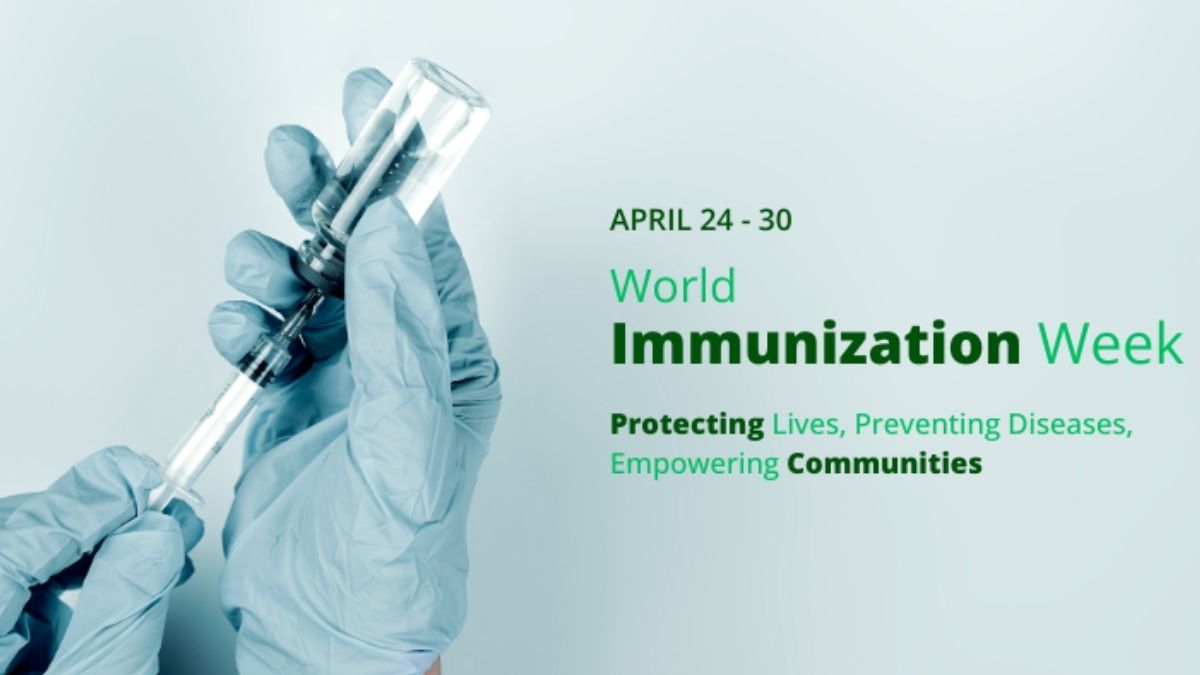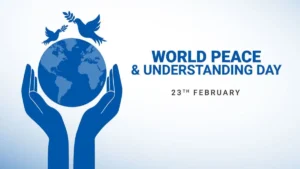World Immunization Week 2025, running from April 24 to 30, is a global campaign spearheaded by the World Health Organization (WHO) to promote the life-saving benefits of vaccines. This year’s theme, “Immunization for All is Humanly Possible,” highlights the need for universal access to vaccines, emphasizing their critical role in preventing deadly diseases and improving health outcomes for people of all ages. The week seeks to encourage individuals, communities, and governments to take action and ensure that everyone has access to the vaccines they need to live a long, healthy life. Since 1974, immunization has saved approximately 6 lives every minute, with vaccines protecting against over 30 life-threatening diseases. However, challenges remain, such as missed vaccinations, which have led to the resurgence of diseases like measles. World Immunization Week aims to address these gaps by raising awareness and educating the public about the importance of immunization.
Key Highlights of World Immunization Week 2025
Key Aspects of the 2025 Theme
- Theme: “Immunization for All is Humanly Possible”
- Global Commitment: The theme reflects the ongoing dedication of governments, healthcare workers, scientists, and organizations to ensure that vaccines are available to everyone. It stresses the importance of immunization as a fundamental public health tool that can eliminate preventable diseases and protect communities worldwide.
- Universal Access: It highlights that vaccination should be accessible to all, regardless of socioeconomic status, age, or geographical location. The message is clear: immunization is not just for children but for people of all ages—from infants to the elderly.
History of World Immunization Week
- Endorsement by WHO
- World Immunization Week was officially endorsed by the World Health Assembly in May 2012. The inaugural World Immunization Week took place that same year, with over 180 countries participating in global efforts to promote the importance of immunization.
- Before 2012, the timing of Immunization Week varied across different regions of the world. Since its establishment, it has been observed annually in the last week of April, aligning with global awareness and educational campaigns.
Importance of Vaccinations
- Protects Against Diseases
- Boosts Immunity Safely
- Prevents Disease Transmission
- Improves Quality of Life
Immunization Saves Lives
- Over the last 50 years, immunization has saved at least 154 million lives, or 6 lives every minute, every day, for five decades.
- Vaccines account for 40% of the improvement in infant survival and have significantly contributed to global health progress.
Measles Vaccine Impact
- The measles vaccine alone has contributed to 60% of the lives saved by vaccination, making it one of the most impactful vaccines in history.
Global Immunization Efforts
- Efforts to eradicate diseases like smallpox and nearly eradicate polio show the significant strides made in immunization, yet the fight is not over. There is a need to continue reaching underserved populations and to vaccinate against emerging diseases like malaria, RSV, and HPV.
Missed Vaccinations
- Despite the successes, 22 million children missed their first measles vaccine in 2023, highlighting the need for renewed efforts in vaccine delivery, especially in regions with low coverage.
Immunization for All
- World Immunization Week 2025 aims to highlight the importance of vaccination for all, from children to adults, regardless of location. It underscores that immunization is not just about children but also about protecting vulnerable groups like the elderly, pregnant women, and adolescents.
Controversies and Challenges
- Vaccination, particularly live attenuated or inactive vaccines, has been controversial in some parts of the world, fueling the anti-vaccination movement. This has led to the resurgence of diseases that were previously under control, such as measles.
Current Statistics and Concerns
- Between 2019 and 2021, the number of unvaccinated children increased by 5 million, and in 2022, 3.5 million girls missed the HPV vaccine, showing a gap in immunization coverage. This could be attributed to lack of awareness and misinformation surrounding vaccine safety.
Global Health Benefits of Immunization
- WHO estimates that vaccines currently prevent 35 to 50 million deaths each year, protecting people from diseases like tetanus, pertussis, influenza, and measles. Immunization programs continue to have a profound impact on child survival rates, reducing global mortality rates from 93 deaths per 1,000 live births in 1990 to 39 per 1,000 live births in 2018.
| Summary/Static | Details |
| Why in the news? | World Immunization Week 2025, History, Theme, Importance |
| World Immunization Week Dates | April 24 – 30, 2025 |
| Theme for 2025 | “Immunization for All is Humanly Possible” |
| Lives Saved by Immunization | At least 154 million lives over the last 50 years |
| Measles Vaccine Impact | Saved 60% of lives from vaccine-preventable diseases |
| Children Missing Vaccines (2023) | 22 million missed first measles vaccine |
| Unvaccinated Children (2019-2021) | Increased by 5 million |




 Central Excise Day 2026: Why 24 February...
Central Excise Day 2026: Why 24 February...
 World Peace and Understanding Day 2026: ...
World Peace and Understanding Day 2026: ...
 International Mother Language Day 2026: ...
International Mother Language Day 2026: ...








